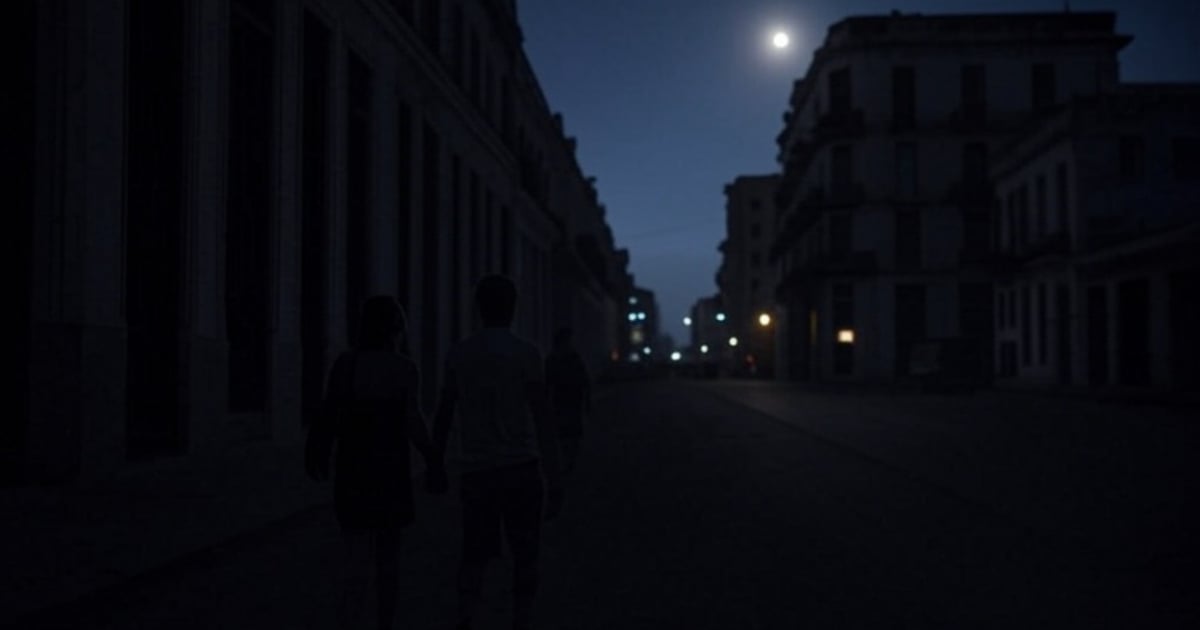The escalating energy crisis in Cuba has left the nation in a state of anxiety and pessimism as electricity becomes increasingly scarce and power plants suffer frequent breakdowns. The Felton thermoelectric plant is now offline for at least 20 days, and the recent failures at the Guiteras plant, which has deteriorated significantly after decades of neglect, paint a bleak picture for the island's power supply.
Many fear a repeat of the widespread blackouts experienced since last October. Frustration, despair, and skepticism prevail among Cubans, who have taken to social media as an outlet for their grievances.
"All these numbers and the current situation suggest we're on the brink of another nationwide blackout. With an 1800 MW deficit, it's clear we'll face at least a week without power. It's a disgrace and an abuse against the people," commented an architect on the Electric Union's Facebook page.
"Don't be surprised if the national electric system collapses at any moment. This is a disaster; we didn't even face such a deficit over the summer. With no fuel and units failing one after another, don't promise maintenance days if you can't deliver. They spend all year on scheduled maintenance, yet when they need to function, they falter within a week. The country's electrical system is a total mess. Soon, electricity will be available once a month, if at all," remarked a resident from Matanzas.
"It's inhumane. Children and the elderly are left without food, unable to sleep while waiting for power to make a simple meal. It's degrading," said a woman from Pinar del Río.
A Granma resident highlighted the Electric Union's forecast for Wednesday, predicting nearly 1800 MW in disruptions. "Prepare for another collapse of the SEN. The impact now exceeds half of the country's required demand. We're living just to endure these daily calamities."
"For God's sake, Matanzas can't take any more. There are elders and children who need a quick solution because we're being slowly killed," expressed a resident from the Pedro Betancourt municipality.
In some areas, power outages are lasting the entire day. "24 hours without power in Cienfuegos, this province is in total chaos, and no leader addresses it," criticized a mother.
"What we're experiencing isn't living. An entire day without electricity, and then they restore it at dawn, forcing people to wash and cook at that hour. Work properly and plan, and you'll see there's no need to torment the people," said a woman from Bayamo.
"This is inhumane. How can a place go 24 hours without power? Who's going to pay for the food that's spoiling? And what's odd is that the two largest plants, Felton and Guiteras, are in Miner," a Cienfuegos resident stated.
Several users expressed dissatisfaction over Havana experiencing fewer power cuts than other provinces. "If you distributed the outages equally across the island, the suffering would be less, but unfortunately, the capital and other places remain untouched during the day and night. It's inhuman what we're going through. And don't tell me it's because of the intensified blockade (...). There may be challenges, but there's also a lack of effective planning," demanded an elderly woman.
"All provinces suffer over 12, 18, 20-hour outages. And Havana? It's unfair that Havana only faces four-hour cuts, no words," questioned a Holguín resident.
"Why rent power barges if they aren't fueled? Why are there 57 sites idle due to fuel shortages? Today, over 500 MW are affected by this issue. Even during the 'special period' and the economic collapse, such regional and sector disparities weren't seen," a tourism worker asserted.
Understanding Cuba's Energy Crisis
Why is Cuba experiencing frequent power outages?
Cuba is facing frequent power outages due to the deteriorating condition of its power plants, a lack of maintenance over decades, and fuel shortages, which have all contributed to the current energy crisis.
What is the impact of the energy crisis on Cuban residents?
The energy crisis has led to long power outages, affecting daily life significantly. Residents struggle to preserve food, perform household chores, and maintain a semblance of normalcy, leading to frustration and despair.
How are Cubans responding to the power crisis?
Cubans are expressing their dissatisfaction and grievances through social media, highlighting the inhumane conditions and demanding better planning and solutions from the authorities.
